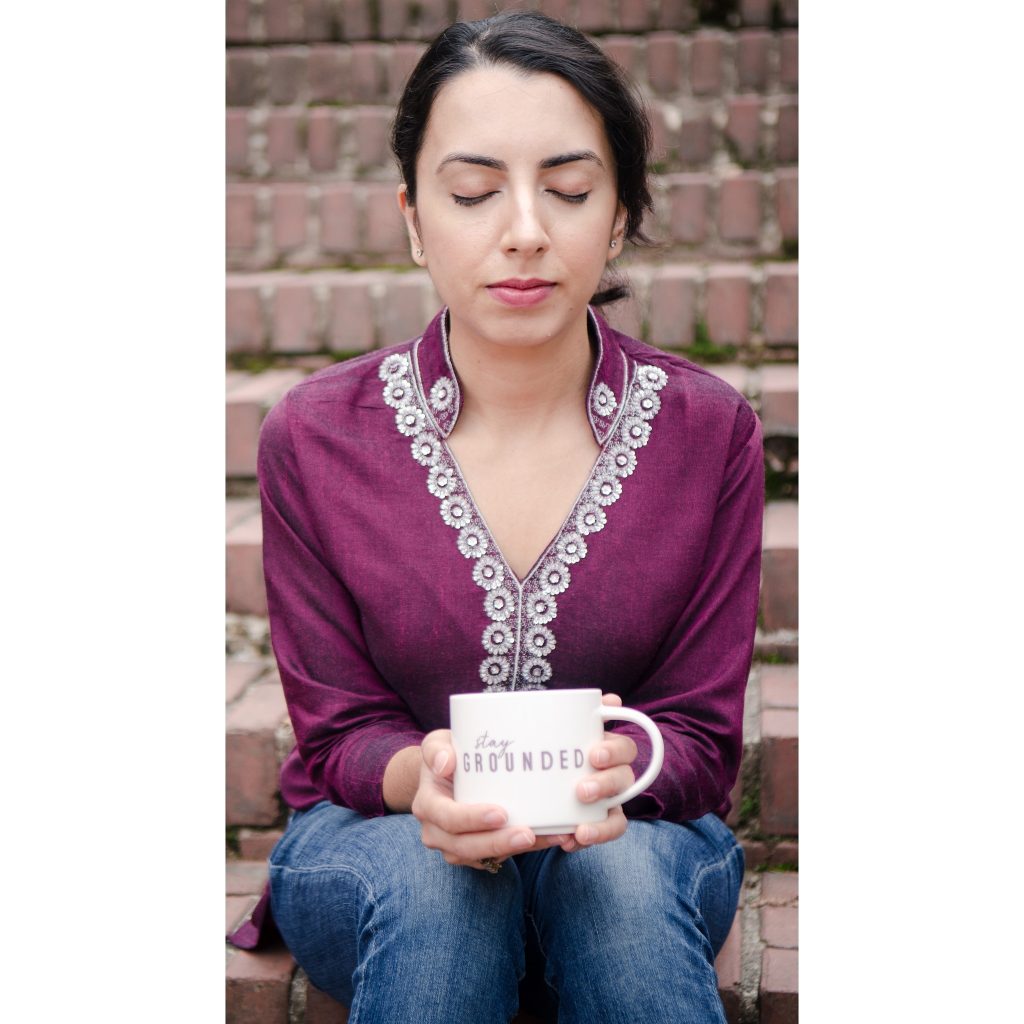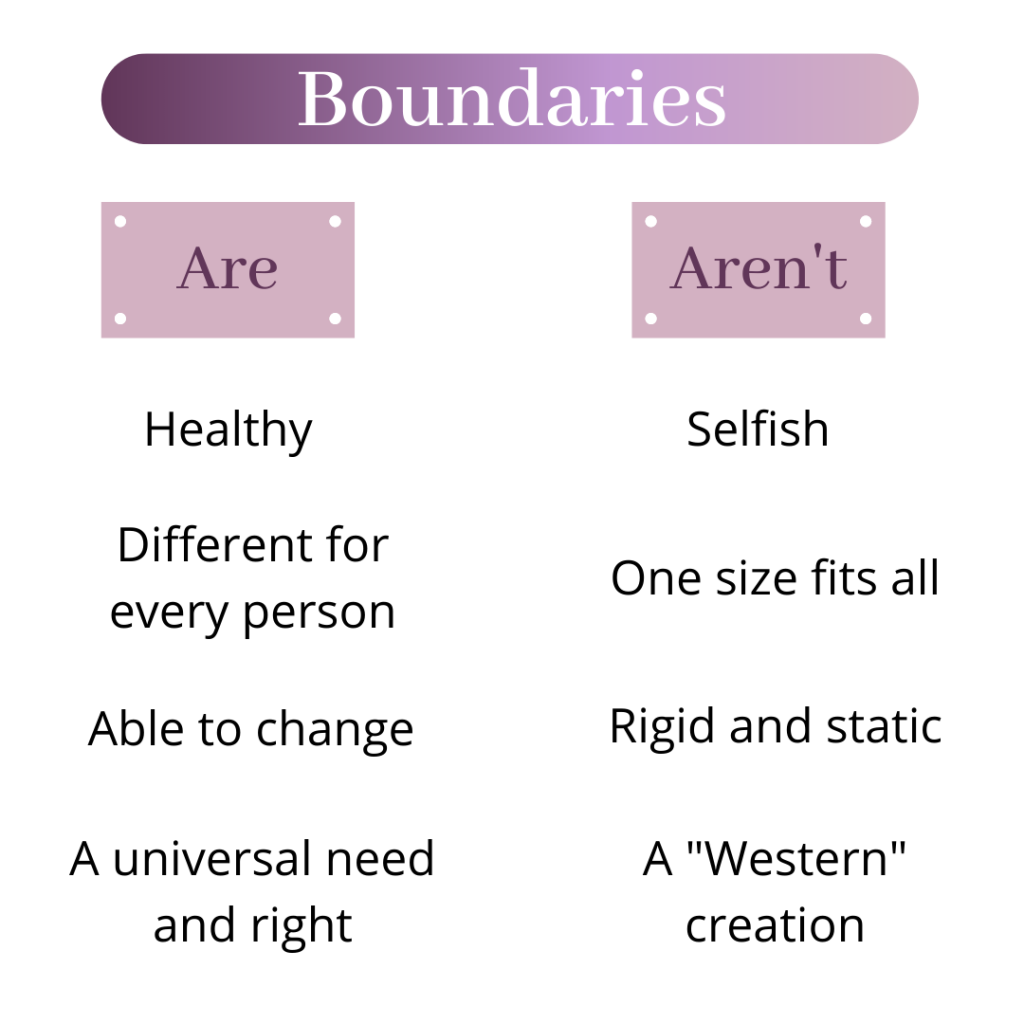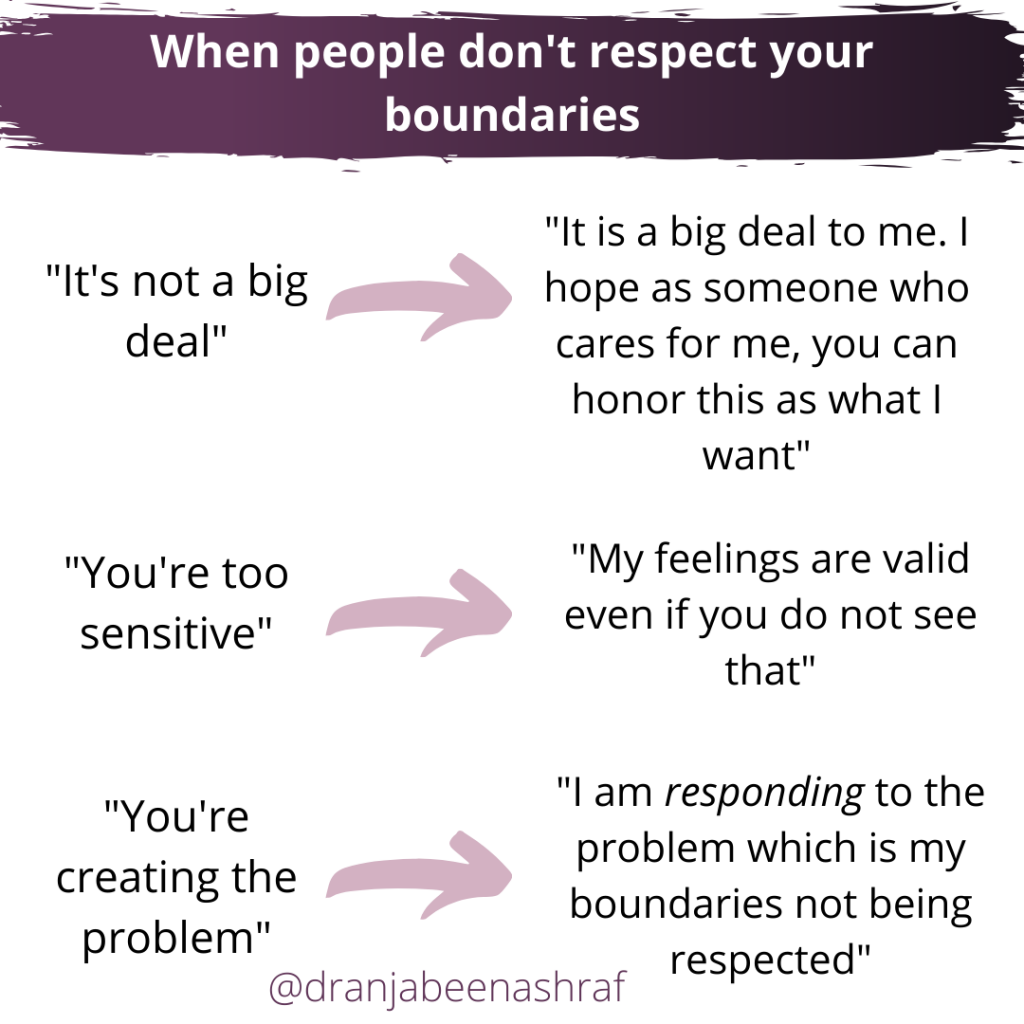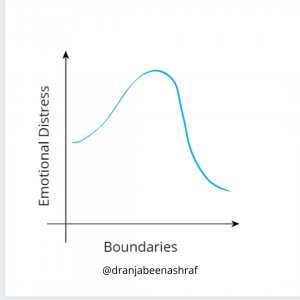
I thought boundaries were supposed to make my life easier?
I hear this a lot. I’ve also said it to myself. The truth is that as we begin to set boundaries, we are going to experience emotional distress. New contexts, new seasons, and new places will bring up the emotional distress sometimes as well even if we’ve been setting those same boundaries for a long time.
The emotional distress can be internal and external. External as the people and systems around us react to our new boundaries. Internal as we react to their upset. Or discomfort at the thought of setting the boundaries because we have internalized messages that we are not worthy, women/Muslim women/women of color/people of color shouldn’t set these boundaries, or because we’ve never had a great example of healthy boundaries.
In those times, it is so important that we acknowledge what is happening. Our mind will probably default to “This is a bad boundary. I shouldn’t do this” or “This is my fault. I’ve made it hard” or “I’m not doing it right”. No. Boundaries are good for us.
Acknowledging what is actually happening looks like, “This is hard. I’m new to this. Makes sense this is so difficult” or “Others are reacting with anger or frustration. Does not make my boundaries and needs any less worthy”.
For my part, I like to take a deep breath, perhaps closing my eyes, and refocusing on WHY I wanted to set this boundary. I set boundaries because I am enough. I set boundaries because I deserve space to become. To grow. I set boundaries to heal myself. To be my own anchor rather than tethering myself to something outside of myself.
So take a moment today to grab a warm cup of something. Sit down. Feel the warmth of the drink. Close your eyes and take 3 deep breaths.
What do you need to tell yourself to sit with this discomfort as you grow into new boundaries?
I’d love to know below 👇


 Many of us have been living with a baseline amount of emotional distress. We’ve become accustomed to it. Not that it is easy.
Many of us have been living with a baseline amount of emotional distress. We’ve become accustomed to it. Not that it is easy.